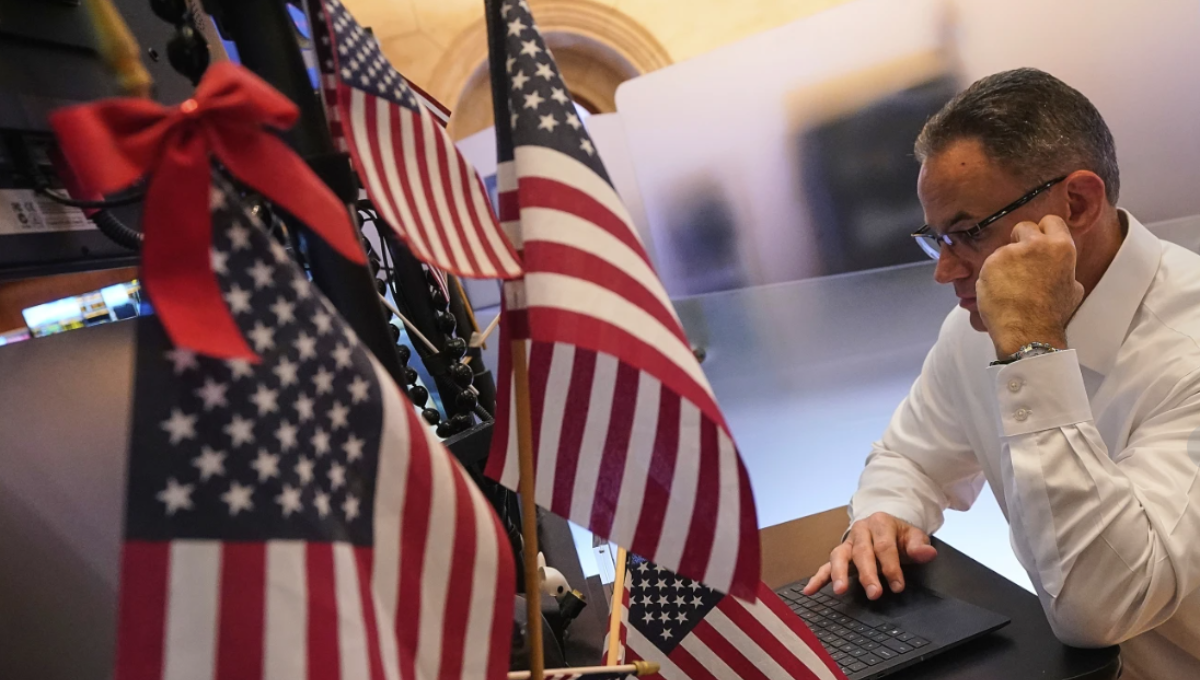U.S. stocks soared to fresh record levels on Thursday, driven by a surprisingly strong jobs report that signaled continued resilience in the labor market.
The S&P 500 climbed 0.8%, notching a record high for the fourth time in five sessions. The Dow Jones Industrial Average gained 344 points (0.8%), while the Nasdaq composite rose by 1%.
The rally was broad-based, with consumer-focused companies leading the way as optimism grew over workers’ financial confidence. Travel and leisure stocks like Expedia rose 3.2%, and Norwegian Cruise Line increased by 2.9%.
Banking stocks also performed strongly. Citigroup shares gained 2.3%, while JPMorgan Chase added 1.9%.
The bond market reacted even more sharply to the government report, which showed that U.S. employers added 147,000 jobs in the past month—more than expected. The data suggests the job market is stronger than previously thought, easing concerns about economic fallout from President Donald Trump’s trade tariffs and inflation risks.
“There is nothing to complain about here,” said Carl Weinberg, chief economist at High Frequency Economics, emphasizing the absence of any signs pointing toward a looming recession.
In a separate release, data showed fewer Americans filed for unemployment benefits last week, reinforcing the narrative of low layoffs and a stable job environment.
Bond yields rose as investors reassessed the likelihood of interest rate cuts by the Federal Reserve. The strong jobs data prompted a shift in market expectations, with futures traders now placing less than a 5% chance that the Fed will cut rates at its next meeting—down from nearly 24% just a day earlier, according to CME Group data.
Fed Chair Jerome Powell has signaled a wait-and-see approach, cautious about acting until the impact of tariffs on inflation and the broader economy becomes clearer. While lower interest rates can stimulate economic growth by reducing borrowing costs, they also carry the risk of fueling inflation—especially if tariffs drive prices higher.
Though many of Trump’s proposed import tariffs are temporarily paused, they’re set to go into effect next week unless new trade agreements are reached. Companies across various industries, especially services, have expressed concern about tariff-related costs, according to a recent Institute for Supply Management survey.
One business from the agriculture, forestry, fishing, and hunting sector commented in the survey that “increased cost from tariffs and the potential for tariffs is impacting cost increases.”
Following the jobs data, the 10-year Treasury yield climbed to 4.34% from 4.30%. The two-year Treasury yield, more closely tied to expectations about Fed policy, rose more sharply—from 3.78% to 3.88%.
Tech firm Datadog saw its shares surge 14.9% after news that it will join the S&P 500 index next week. Inclusion in the widely followed index typically drives investment demand, especially from index-tracking funds. Datadog will replace Juniper Networks, which is merging with Hewlett Packard Enterprise.
On the downside, homebuilders felt pressure as rising interest rates could dampen demand for mortgages. Lennar dropped 4.1%, and D.R. Horton declined 2.7%.
At Thursday’s close, the S&P 500 rose by 51.93 points to 6,279.35. The Dow advanced 344.11 points to 44,828.53, and the Nasdaq climbed 207.97 points to 20,601.10.
Globally, most major markets were also up. South Korea’s Kospi gained 1.3%, while Hong Kong’s Hang Seng fell 0.6%—highlighting mixed sentiment across Asia.
Also Read:
US Stock Indexes Climb Again as Tesla Leads the Way
Wall Street Divided as Tesla and Tech Stocks Fall While Broader Market Gains














